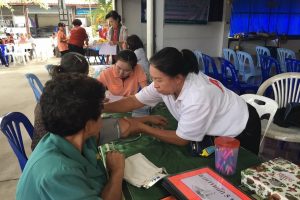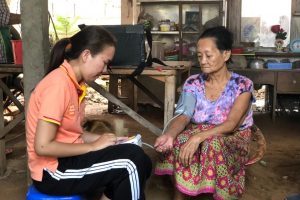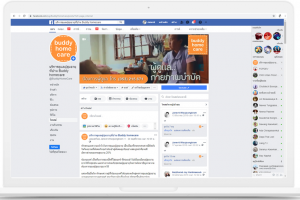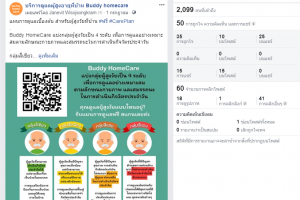2020 HAPI Grand Prize Winner
Since 2015, Buddy HomeCare (BHC), a social enterprise operated by the Foundation for Older Persons’ Development (FOPDEV), has been working on an innovative intergenerational approach to solve the dual problems of older people in need of care services and of indigenous youths living in poverty with limited educational opportunities. By leveraging smartphone technology with their community-based healthcare and monitoring system mobile app, Buddy HomeCare assists three target groups: older people with low incomes, older people with middle and high incomes, and youth with low incomes.
The BHC app includes features for conducting health screenings, designing individual healthcare programs, and enabling follow-ups, which can be used to support remote healthcare for both paying customers and older people with lower incomes. A care manager works to create an individual care plan for each older person, inputting descriptions of tasks into a database. They then generate a QR code that can be used by the app to allow caregivers or health volunteers to access the care plan themselves.
Acceptance Video from FOPDEV
Caregivers or BHC volunteers then carry out basic health check-ups, such as taking blood pressure, and can assist with daily-life activities, such as bathing, cutting nails and hair, and cleaning. Older people themselves, their family members, caregivers, and volunteers can all input medical data into the app themselves. The BHC team can then analyze the data and receive alerts if there are any abnormalities or conditions exceed the normal threshold. Alerts will be sent to the nurses and support team who can respond and adjust the care plan as needed.
BHC has been able to roll out its program to include monthly visits to 45 customers and daily visits to 110 customers. By providing professional care through its caregivers and volunteers, BHC reduces the burden on informal family caregivers, allowing them to have free time from caring for their family. At the same time, the app system allows family caregivers to monitor the health of their loved ones online in real time.
While there are other examples of healthcare monitoring systems, what makes the work of BHC and FOPDEV truly unique is their social enterprise approach that focuses on creating an equitable society for all. This can be seen through the work they have done with the Karen people, a distinct ethnic group with their own language who live in Northern Thailand and Myanmar. BHC offers disadvantaged Karen youth training to become caregivers, providing them the opportunity to contribute to the wellbeing of older people while also offering them access to educational and better career opportunities.
BHC provides a 3-month training course for these youth with a curriculum designed by Chiang Mai University’s faculty of nursing. To date, 35 hill tribe youth have been trained through the program and 15 have gone on to assist BHC as caregivers. The remaining 20 have all remained in the healthcare field, working as healthcare volunteers and change agents in their communities.
In addition, BHC aims to support disadvantaged and low-income older adults and so have offered basic healthcare training and a license to access the healthcare monitoring system to 253 family caregivers. This has led to them providing 1,743 home visits and has allowed 33 older persons to recover and/or maintain their health condition following health analysis from information collected via the BHC monitoring system.
KEYS TO SUCCESS
- FOPDEV applied their 15 years of experience in community-based care to the creation of a new technology system that meets a variety of community needs
- Careful planning and ongoing assessments have allowed them to anticipate and prepare for difficulties with implementing this new technology in advance
- The technology allows family members, caregivers, health volunteers, or the client to record and monitor health information to ensure that any abnormalities are quickly noticed and treated
- By offering both paid and charitable services, the program is cost-effective and sustainable





